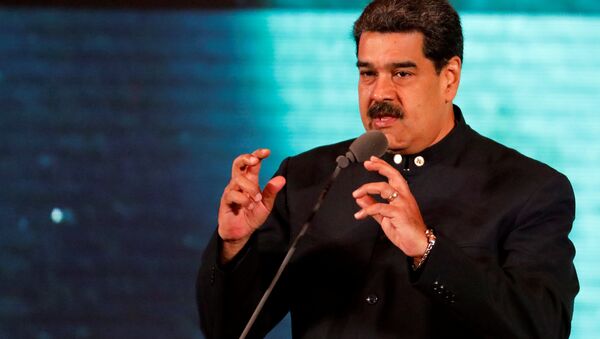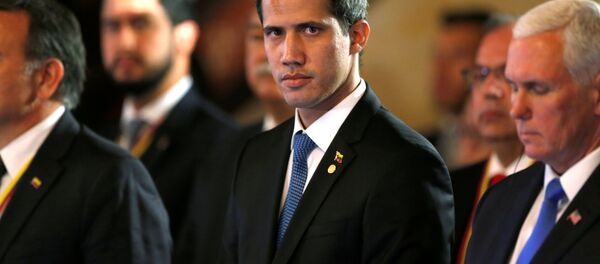"Next March 9 is the 4-year anniversary of the infamous Obama decree, that Venezuela is a threat," Maduro said. "That day will be decreed as the day of anti-imperialism and we go to the streets this Saturday, March 9."
#EnVivo 🔴 | Pdte. @NicolasMaduro: Hoy más que nunca llamo a la defensa de la Patria, a la unión cívico nacional, con amor y con lealtad. #6AñosDeAmorYLealtad pic.twitter.com/gSGoIUOoJC
— Ducolsa Oficial (@somosducolsa) March 5, 2019
The decree to which Maduro refers is an executive order signed by then-US President Barack Obama in 2015 that designated Venezuela "an extraordinary threat to the national security of the United States," placing extensive sanctions on Venezuelan political and military figures.
"We will defeat the minority," Maduro said in the speech, referring to the political opposition group that has rallied around self-proclaimed Interim President Juan Guaido. "Nobody and nothing can disturb the peace of the republic."
On January 23, Guaido declared himself to be Venezuela's interim president and denounced Maduro's presidency as undemocratic. While Guaido has accumulated endorsements from many Western powers, such as the US, his following both inside and outside the country is small: a poll conducted shortly after Guaido's declaration found that 80 percent of Venezuelans had never heard of him. In addition, three quarters of the globe's countries have maintained their relations with Maduro, who was elected to a second term last May.
Guaido has also called for a march against Maduro on March 9, the first since he returned to the country earlier this week. Guaido spent last week abroad, traveling to a number of right-wing Latin American governments that are hostile to Caracas, trying to gain support for Maduro's ouster.



